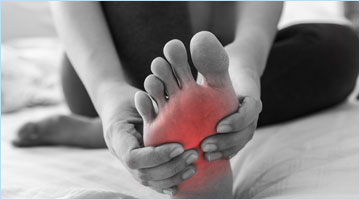Certified Foot & Ankle Specialists utilizes the most state-of-the-art technology to properly diagnose your foot and ankle condition to ensure the best possible outcome while utilizing the most conservative treatment.
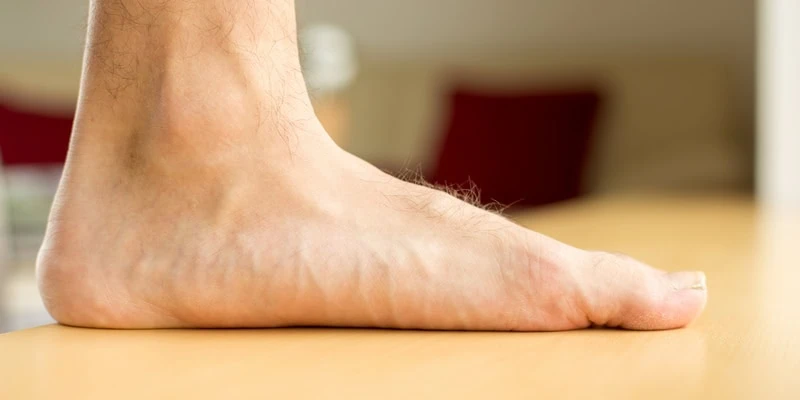
Services Overview
Adult acquired flatfoot
Adult-acquired flatfoot represents one of the most challenging clinical conditions facing the podiatric physician. With insights gained from recent biomechanical studies, doctors can more accurately design and target treatment strategies for a more positive patient outcome.
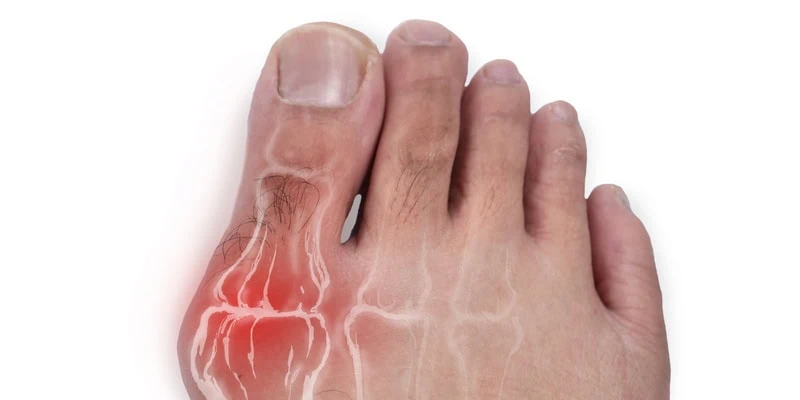
Services Overview
Bunions
A bunion is a common deformity found on the foot in which a bump forms over time and begins to protrude from the forefoot. The “bunion” is actually a deformity of the first metatarsal phalangeal joint, or “Big Toe Joint”. In this case the big toe begins to deviate, and causes the muscles, bones, and joints to become imbalanced. As time goes on this imbalance creates arthritis, and the stereotypical large bump to stick out from the foot.
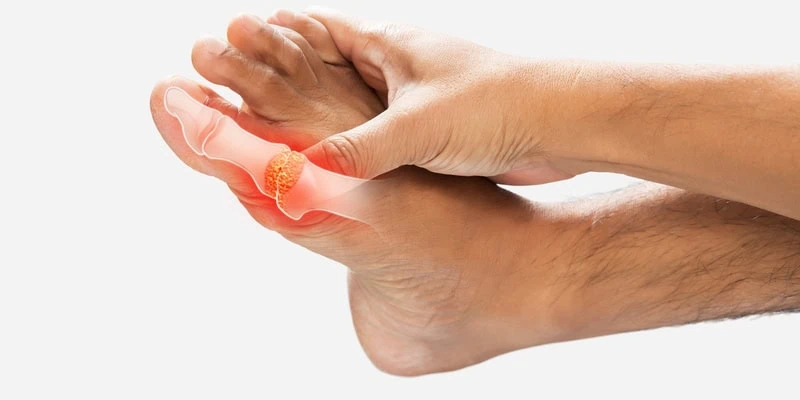
Services Overview
Foot Arthritis
Many patients who come to our foot and ankle clinic believing they suffer from ankle arthritis are actually experiencing arthritis in the foot. There are many joints in the foot, all of which can become arthritic. When conservative treatment fails, surgery to replace certain joints of the foot or to fuse the joint can be very successful at relieving pain and restoring patients to function.
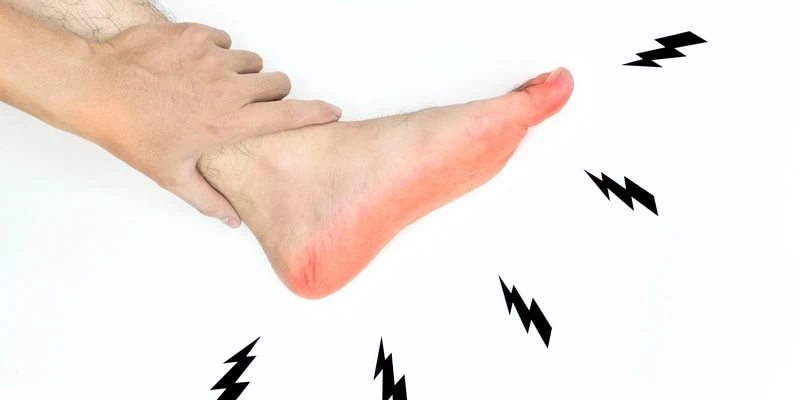
Services Overview
Foot Numbness
Foot numbness, also known as Peripheral Neuropathy, is a problem that we see very often as foot and ankle specialists. Numbness may occur in the bottom of the feet, top of the feet, the toes or the legs. There are many causes for numbness in the legs, feet and toes. Foot numbness may be painful, but sometimes may present only as an annoying sensation or absence of sensation. The most common causes of numbness in the legs, feet and toes as well as treatment for numbness in the feet will be described below.

Services Overview
Foot Pain
There are many problems that can cause mild to severe foot pain. Early diagnosis is key to effective treatment! Non-specialists are not proficient with diagnosing the underlying causes of foot pain. Therefore, it is extremely important to see a foot and ankle specialist in order to arrive at the proper diagnosis. Your foot and ankle specialists may use a number of different diagnostic modalities in order to diagnose the cause of your foot pain problems. After the cause of your foot pain has been identified, your podiatrist can recommend a treatment plan to get you back on your feet.
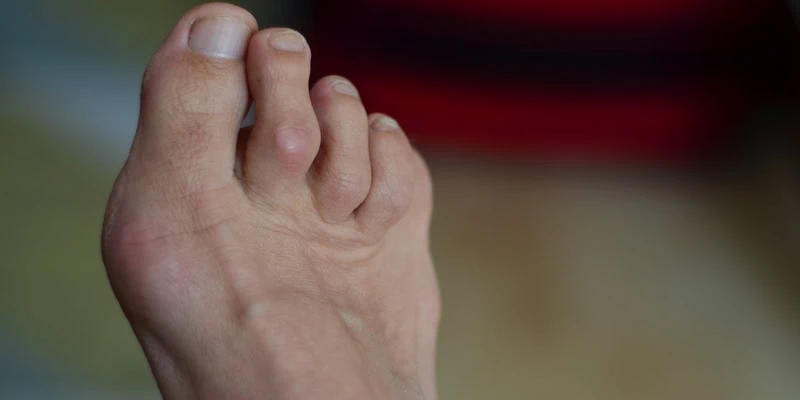
Services Overview
Hammertoe
A hammertoe is a deformity of the toes of the foot. It commonly affects the second toe, however any of the lesser toes can be involved. The toe may be curled downward instead of pointing straight. It also may bend at the joint and cause this area to stick upwards. These deformities can cause patents pain, especially when they are wearing enclosed shoes.
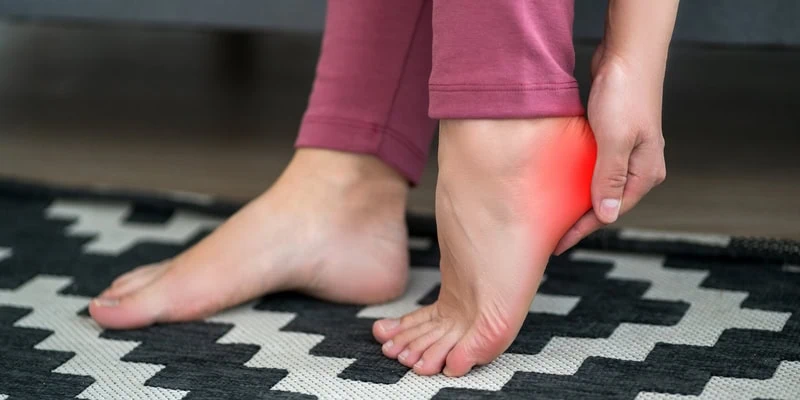
Services Overview
Heel Spur
As Board Certified Foot and Ankle Specialists, heel pain is the most common condition we see. Heel spur syndrome, also known as Plantar Fasciitis, is a chronic, overuse type injury that occurs in people of all shapes and sizes, of all ages and activity levels. It most commonly develops without an injury and results in significant pain in the heel or arch of the foot which can be debilitating. Fortunately, heel spur syndrome can usually be treated conservatively without the need for surgery.
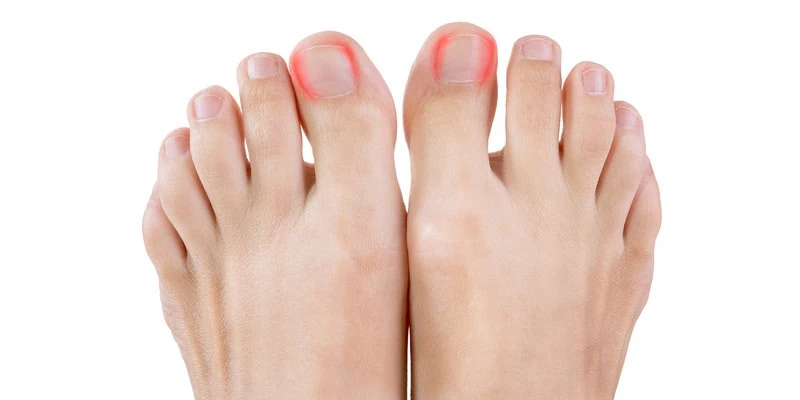
Services Overview
Ingrown Toenails
Ingrown toenails are a very common problem that brings a patient to see a podiatrist. Ingrown toenails occur when sides of the nails grow in to the skin surrounding the nail. This pinching and irritation to the skin causes a painful condition that, if left untreated, can cause infection. This infection can lead to a very serious problem especially in people with other medical conditions including diabetes, peripheral vascular disease and compromised immune systems.
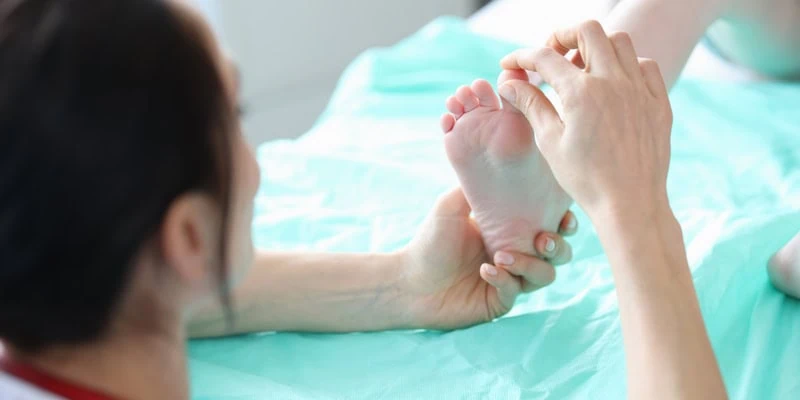
Services Overview
Pediatric Flat Feet
Flat feet, or feet without an arch, are extremely common in children. In fact, all kids’ feet are flat at early stages of normal development.

Services Overview
Plantar Fasciitis
Plantar fasciitis pain is literally the most common complaint that we hear as foot and ankle specialists. This is commonly referred to as heel spur syndrome but the heel spur is not what causes the pain. Plantar fasciitis pain results from inflammation of the plantar fascia, the ligament on the bottom of the foot. This usually occurs from overuse and from the plantar fascia being too tight. The symptoms of plantar fasciitis include severe pain in the bottom of the foot or on the heel, which usually gets worse after rest or in the morning. The pain from plantar fasciitis can be debilitating for patients.
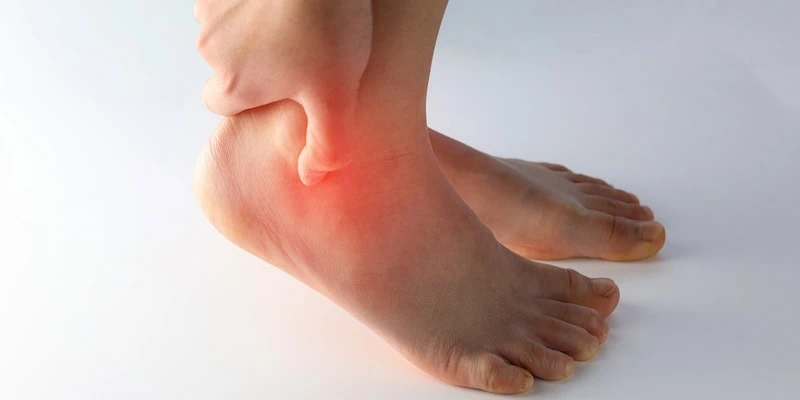
Services Overview
Tarsal Tunnel
The tarsal tunnel is an area on the inside of the ankle made up of bone and ligament. The posterior tibial nerve and its branches pass through this anatomic tunnel. Tarsal tunnel syndrome occurs from pressure on the posterior tibial nerve in this area and results in pain, numbness, tingling, and burning in the heel and bottom of the foot. Tarsal tunnel syndrome is often misdiagnosed as plantar fasciitis. It should be suspected when conservative treatment aimed at treating plantar fasciitis fails.
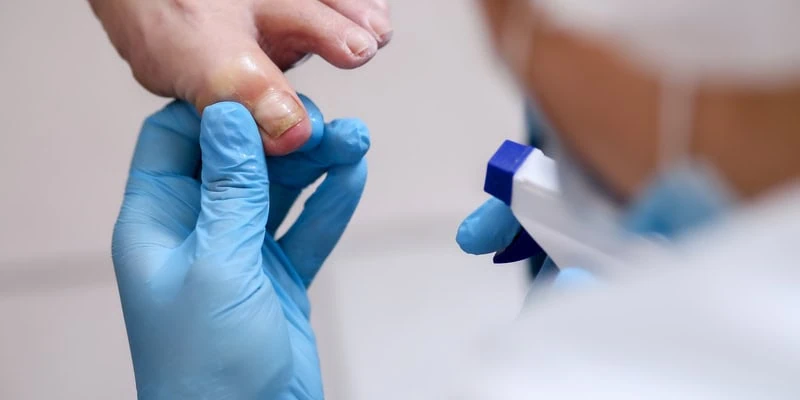
Services Overview
Toenail Fungus
One of the most common infections throughout the middle age realm and above is toenail fungus. Statistics show that by the time average Americans reach the age of 70 years old, 50% of people will have some degree of toenail fungus.
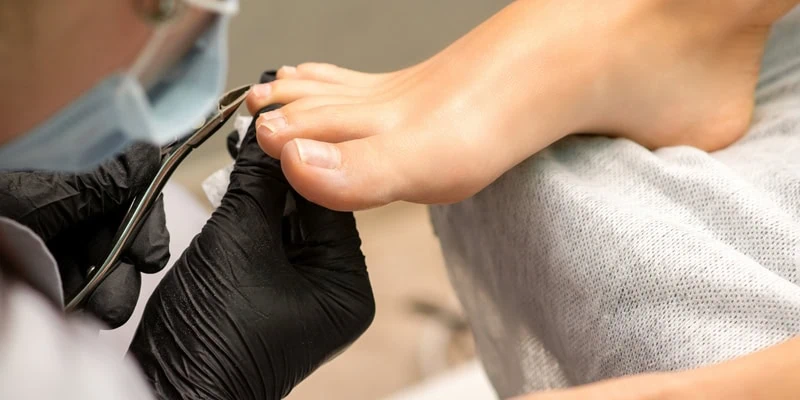
Services Overview
Toenail Trimming & Care
Proper nail care is necessary for everyone’s health. While you may be able to care for your toenails at home, you can also schedule a visit with the podiatrists at Certified Foot and Ankle Specialists to trim your toenails properly. It is during this visit that many overlooked preventive measures are performed. Having a physician perform these treatments is important because we are able to use medical-grade, sterilized equipment, provide preventive evaluation of the entire lower extremity, and most of all, we are able to provide overall care. These preventive visits keep small issues from becoming larger concerns, which is especially important for those with diabetes or vascular ailments



